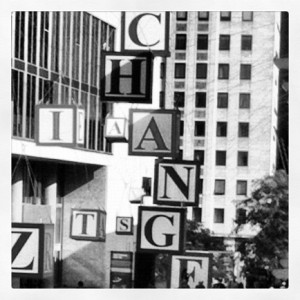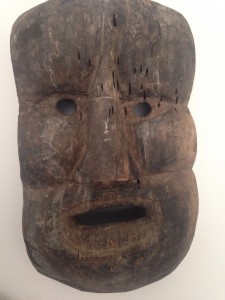L’interculturalité à l’heure du numérique : quelles approches, quelles méthodologies ?
Interculturality in Digital Times: What Approaches? What Methodologies?
Dates : 19-20 juin 2015 / June 19th– 20th 2014
Lieu/Place : ICP / Catholic University of Paris
Organised by ICP and the Department of Teacher Education (University of Helsinki, Finland, E4D research group)
Appel à communications / CFP in English below
Argumentaire
A l’heure d’Internet, des réseaux sociaux et du développement de la communication en ligne, la notion d’interculturalité connaît un franc succès, tant dans la sphère médiatique, que sociale ou encore éducative. Mais la définition de ce concept repose bien souvent sur des hypothèses de la culture qui figent, voire conditionnent, les comportements humains. Or, cette conception de la culture est largement critiquée depuis des décennies en SHS, tandis qu’elle résiste dans les curricula scolaires. Dans le même temps, le développement des technologies de l’information et de la communication (TIC) a favorisé, dans une certaine mesure, l’accroissement des mobilités et des connexions interindividuelles. Que peut apporter alors le web à la mise en place et à l’étude de l’interculturalité ? Les environnements sociotechniques (Jouët, 1989) permettent-ils, et dans quelle mesure, d’ouvrir des fenêtres sur l’expérience de l’individu contemporain marquée par la diversification de ses pratiques sociales, de ses interactions, de ses identifications ?
Ce colloque bilingue (français et anglais) se propose donc de faire le point sur les utilisations des technologies et du web dans une perspective interculturelle et/ou multiculturelle. Il s’agit également de rassembler chercheurs et praticiens qui construisent des dispositifs de formation ou de recherche destinés à mieux comprendre l’homme dans sa relation aux mondes contemporains. La réflexion, quelle soit théorique ou méthodologique, est ouverte à tout champ disciplinaire. Elle concerne aussi bien les pratiques de recherche que de formation, formelles ou informelles.
Axes proposés :
- L’interculturalité dans les programmes en ligne aujourd’hui
- La construction du rapport à soi, à l’autre et au monde avec les outils numériques
- L’observation et l’analyse de pratiques interculturelles médiatisées : approches, terrains et corpus.
Type de contributions attendues
Les propositions de communication devront clairement mentionner les références théoriques et/ou méthodologiques, les objectifs et contenus des dispositifs étudiés, ainsi que trois références bibliographiques.
Les contributions peuvent être proposées en français ou en anglais, sous la forme d’un résumé de 300 mots et accompagné de 4 mots-clés, jusqu’au 30 septembre 2014.
Elles seront examinées par le conseil scientifique qui procédera à une évaluation pour le 1er novembre 2014.
Une sélection des communications fera l’objet d’une publication à paraître fin 2015.
Interculturality in Digital Times: What Approaches? What Methodologies?
With the omnipresence of the Internet, social networks and the development of online communication, the notion of interculturality is quite popular, be it in the media, social and educative spheres. Yet the definition of the notion often relies on the idea that culture is solid and that it is the only element that conditions human behaviors. This understanding of culture has been largely questioned in the human and social sciences over the last decades while it seems to remain the norm in education. At the same time the development of Information Technology and Communication (ICT) has led, up to a point, to an increase of mobility and inter-individual connections. What can the web then bring to both establishing and studying interculturality? Can sociotechnological environments (Jouët, 1989) allow to open new windows into the experience of contemporary individuals which is marked by the diversification of their social practices, interactions and identifications?
This bilingual conference (French and English) deals with the use of technologies and the Internet in relation to the intercultural and/or the multicultural. Its goal is also to gather researchers and practitioners interested in sharing their research and practice results that can help us to understand how today’s individual relates to our contemporary worlds. Theoretical and methodological perspectives can be introduced from any scientific field. Papers can deal with either research and/or formal-informal training/education.
Suggested topics:
1. Interculturality in online communication today from a critical perspective.
2. Constructing self, other and the world by means of digital technologies.
3. Observation and analysis of intercultural practices online: approaches, contexts and corpora.
Submitting a proposal
Paper proposals should include: theoretical/methodological perspectives, research objectives, description of the context as well as up to three references.
The abstracts can be written in French or English. They should not be more than 300 words, 4 keywords. The deadline for submitting an abstract is 20.10.2014.
Decisions concerning acceptance or refusal will be available on 10.11.2014. The abstracts will be blind peer reviewed.
Following the conference, a selection of papers will be published in a special journal issue and a collected volume.

